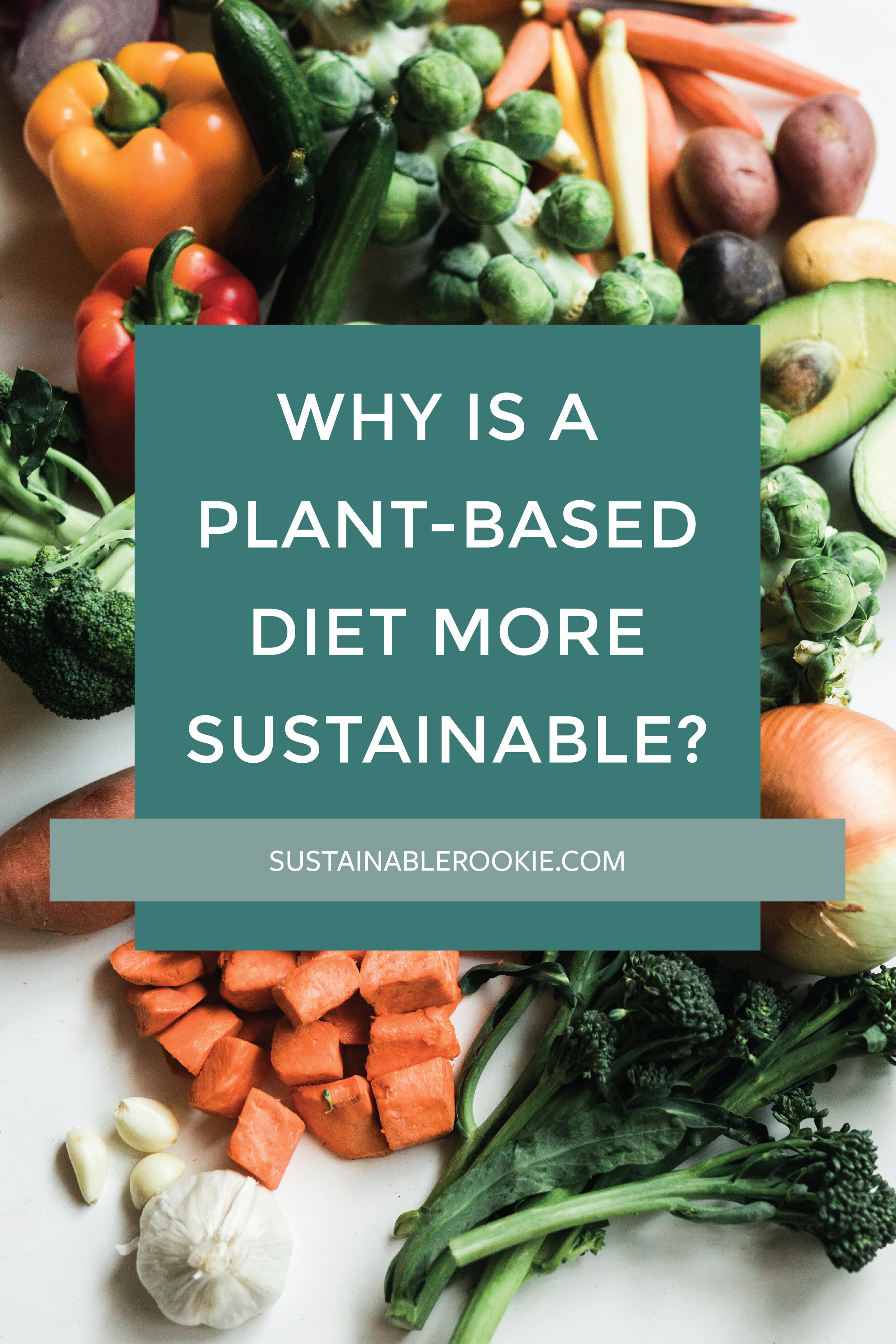Gluten Free BBQ Sauce Recipes That Even Meat-Eaters Will Love
Wiki Article
Everything About Healthy Food: Benefits of Taking On Plant Based Options
The discussion surrounding plant-based diets has actually gained significant focus in recent times. Several people are discovering the possible health and wellness benefits, nutritional benefits, and ecological effects connected with these dietary choices. As people come to be more aware of their food's influence on wellness and sustainability, questions arise concerning the usefulness of embracing such a way of life. What specific adjustments can one anticipate, and exactly how might these choices improve not only personal wellness however also the earth's future?Comprehending Plant-Based Diet Regimens
Many people link plant-based diets primarily with vegetarianism or veganism, these diet plans can include a broad range of consuming patterns that prioritize entire, minimally processed plant foods. Such diet regimens commonly include fruits, veggies, whole grains, seeds, vegetables, and nuts, while getting rid of or restricting animal products. This adaptability allows people to customize their dietary selections according to nutritional needs and individual preferences. Some may take on a mostly plant-based diet regimen while still sometimes consuming meat or milk, typically referred to as a flexitarian technique. The emphasis remains on integrating even more plant foods, which can lead to a diverse range of tastes and meals. Recognizing these various analyses of plant-based consuming is essential for appreciating its availability and allure in modern food culture.Health Advantages of Plant-Based Foods
The wellness advantages of plant-based foods are substantial, offering a nutrient density advantage that supports general wellness. Research study suggests that these foods can boost heart wellness and play a crucial role in reliable weight management. By including more plant-based options, individuals may enhance their dietary choices and promote lasting wellness.Nutrient Thickness Benefit
Nutrient thickness plays a necessary duty in the wellness advantages of plant-based foods, making them an engaging option for those seeking a balanced diet. Plant-based foods, such as fruits, veggies, beans, nuts, and entire grains, are usually abundant in crucial vitamins, minerals, and anti-oxidants while being reduced in calories. This high nutrient density allows people to eat less calories while still satisfying their nutritional demands. In addition, these foods are loaded with dietary fiber, promoting digestive system wellness and helping in weight administration. By incorporating nutrient-dense plant-based alternatives, customers can improve their overall wellness, sustain their immune systems, and lower the danger of chronic conditions. Inevitably, the nutrient density of plant-based foods emphasizes their significance in a health-conscious lifestyle.Heart Wellness Enhancement

Weight Management Assistance
Along with advertising heart health and wellness, a plant-based diet plan can considerably help in weight administration. This nutritional technique emphasizes entire foods such as fruits, vegetables, beans, nuts, and whole grains, which are generally reduced in calories and higher in fiber contrasted to animal-based products. The high fiber material helps boost satiety, lowering overall calorie consumption. In addition, plant-based diets are usually rich in essential nutrients while low in harmful fats, making it much easier to maintain a healthy weight. Plant Based Beef. Research study indicates that individuals who embrace a plant-based way of living tend to have reduced body mass indexes (BMIs) and experience even more successful weight management compared to those who take in meat-heavy diet regimens. Embracing plant-based options is a calculated selection for reliable weight management.
Nutritional Value of Plant-Based Ingredients
Plant-based components are abundant in crucial nutrients, offering a diverse range of vitamins, minerals, and antioxidants that add to general wellness. A contrast of healthy protein resources discloses that while pet items are often considered as exceptional, numerous plant-based choices supply appropriate healthy protein and other useful substances. Recognizing the dietary worth of these active ingredients can aid people make notified dietary choices.Important Nutrients in Plants
Nutrient-rich ingredients found in plants offer a varied variety of necessary nutrients that contribute significantly to overall health. These active ingredients are abundant in vitamins A, C, and K, which support immune function, vision, and blood clot, specifically. Furthermore, plants provide important minerals such as magnesium, calcium, and potassium, important for heart health, muscle mass function, and bone toughness. The existence of fiber in plant-based foods aids food digestion and advertises a healthy intestine microbiome. Antioxidants, found perfectly in vegetables and fruits, aid battle oxidative stress and lower inflammation. Several plant foods are low in calories yet high in nutrients, making them a superb option for those looking for to maintain a healthy and balanced weight while ensuring suitable nutrient intake.
Contrasting Healthy Protein Resources
Protein sources vary considerably in their dietary accounts, with plant-based components providing distinct advantages. Unlike pet healthy proteins, which commonly consist of saturated fats and cholesterol, plant proteins often tend to be reduced in these undesirable components. Legumes, nuts, seeds, and entire grains are rich in important amino acids, fiber, vitamins, and minerals. For example, lentils give high healthy protein material alongside substantial iron and folate, while quinoa is a total protein, offering all 9 vital amino acids. In addition, plant-based healthy proteins are typically accompanied by anti-oxidants and phytochemicals that support total health and wellness. The shift to plant-based healthy protein sources not just enhances dietary consumption however also straightens with sustainable nutritional practices, lowering ecological effect and promoting long-lasting health advantages.Environmental Effect of Plant-Based Consuming
As understanding of environment change expands, many people are discovering sustainable nutritional choices that can substantially reduce their ecological footprint. Plant-based eating has actually become a substantial contributor to lowering greenhouse gas exhausts, which are largely associated with animals manufacturing. The farming of fruits, vegetables, grains, and vegetables usually requires fewer resources, such as water and land, contrasted to animal farming. Additionally, plant-based diet plans can result in decreased deforestation, as much less land is needed for grazing livestock or growing animal feed. By shifting towards plant-based choices, customers can support biodiversity and advertise much healthier environments. Overall, embracing plant-based consuming not only benefits individual health but likewise represents a crucial action toward environmental sustainability and preservation efforts.Overcoming Common Misconceptions
While many people acknowledge the benefits of a plant-based diet plan, numerous false impressions frequently discourage them from completely embracing this lifestyle. A common idea is that plant-based diets do not have sufficient protein; nevertheless, many plant resources, such as legumes, nuts, and tofu, offer sufficient protein. Furthermore, some assume that this diet regimen is pricey, when in truth, staples like beans, rice, and seasonal vegetables can be fairly cost effective. Another misconception is that plant-based eating is overly limiting, whereas it actually offers a diverse selection of foods and tastes. Numerous worry that a plant-based diet might lead to shortages, yet with correct planning, individuals can get all needed nutrients, including minerals and vitamins, while delighting in a wide selection of delicious dishes.Tips for Transitioning to a Plant-Based Way of living
Making the shift to a plant-based way of living can be an enriching experience, though it usually calls for some assistance to browse the preliminary adjustments. First, people are encouraged to start progressively, integrating even more fruits, veggies, vegetables, and entire grains into their meals while lowering meat and dairy usage. Meal planning is crucial; preparing a weekly menu can assist reduce the change and stop final unhealthy choices. Checking out brand-new dishes and cooking methods can likewise boost the experience and maintain enjoyment regarding plant-based consuming. In addition, signing up with assistance teams or communities can provide motivation and share important ideas. Ultimately, remaining educated concerning nourishment warranties well balanced dishes, protecting against shortages while fostering a healthy and balanced, their website satisfying plant-based way of life.Delicious Plant-Based Dish Ideas
Checking out delicious plant-based meal concepts can influence people to embrace a much more nutritious diet plan. One preferred option is a hearty quinoa salad, including cherry tomatoes, cucumber, and a zesty lemon-tahini dressing. An additional fave is a tasty lentil stew, loaded with carrots, celery, and fragrant herbs, best for a comforting dinner. For breakfast, over night oats made with almond milk, chia seeds, and covered with fresh berries provide a healthy begin to the day. In addition, a vibrant vegetable stir-fry with tofu and a range of vivid veggies can be a fast yet satisfying dish. Luscious avocado salute on whole-grain bread, sprayed with seasonings and seeds, provides an easy yet delicious snack. These dishes display the selection and splendor of plant-based eating.
Often Asked Concerns
Can a Plant-Based Diet Regimen Offer Enough Protein?
The inquiry of whether a plant-based diet plan can provide enough protein is common. Numerous resources, including beans, nuts, learn this here now seeds, and whole grains, can satisfy protein requires successfully, supporting a well balanced and healthy diet for people.Are Plant-Based Diets Ideal for Children?
The viability of plant-based diets for youngsters depends upon mindful planning. Ample nutrients need to be guaranteed, consisting of vitamins, healthy proteins, and minerals. With appropriate guidance, such diet plans can sustain healthy development and growth in kids.Just how Do I Eat in restaurants on a Plant-Based Diet plan?
Eating out on a plant-based diet includes looking for restaurants with varied food selections, asking for adjustments, and discovering vegan-friendly options. Planning in advance and communicating dietary choices can boost the dining experience while maintaining nutritional selections.What Are Common Allergens in Plant-Based Foods?
Typical irritants in plant-based foods consist of soy, gluten, nuts, and seeds - Plant Based Chicken. People adhering to a plant-based diet ought to recognize these irritants and review labels thoroughly to prevent damaging responses and guarantee safe consumptionfind more info
Can Plant-Based Diets Assist With Fat Burning?
Study indicates that adopting a plant-based diet might promote weight reduction as a result of its generally reduced calorie thickness and greater fiber material. This mix can boost satiation, aiding people handle their calorie intake successfully. Lots of individuals connect plant-based diet plans generally with vegetarianism or veganism, these diet plans can include a large variety of eating patterns that prioritize entire, minimally refined plant foods. Nutrient thickness plays a crucial duty in the wellness benefits of plant-based foods, making them a compelling choice for those seeking a well balanced diet regimen. Plant-based diet plans have actually been revealed to noticeably enhance heart health and wellness, as they frequently include elements that sustain cardio function. In enhancement to advertising heart health and wellness, a plant-based diet can considerably assist in weight administration. A common idea is that plant-based diet plans lack enough healthy protein; nevertheless, numerous plant resources, such as vegetables, nuts, and tofu, provide enough healthy protein.Report this wiki page